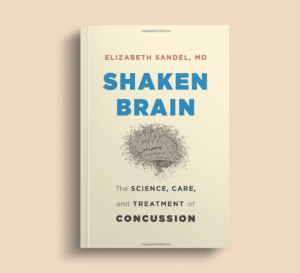Mood Disorders Such as Depression Can Complicate a Brain Injury

Strong Connection Between TBI and Mental Health Disorders
Providers, patients, parents, and young people must understand the strong connection between traumatic brain injury (TBI) and mental health disorders. Screening for these disorders should be a part of healthcare encounters for patients with concussions or more severe brain injuries. Depressive disorders are the most common psychiatric sequels of TBI, and they are often associated with other disorders such as anxiety, substance misuse, and suicidal thoughts or actions.
Mental health disorders were already prevalent in the US population and have surged during the COVID-19 pandemic. In a recent CDC survey, one of every five adults reported receiving mental health treatment during 2020, and women were more likely than men to have received mental health treatment. Non-Hispanic white adults were more likely than other racial or ethnic groups to have received mental health treatment.
Depression and Anxiety Following a Concussion
A large Northern California Kaiser Permanente study showed depression and anxiety disorders to be most prominent during the first 12 months following a mild TBI or concussion.
In the group of more than nine thousand Kaiser members, 23% had a diagnosis of an affective disorder, but only 14% of the control group had one of these diagnoses. The 4-year odds ratio for having an affective disorder following a mild TBI was 1.2. The odds ratio was 1.5 for patients with a prior affective disorder.
Studies of youth athletes, college athletes, and retired NFL players have also demonstrated an increased risk of mental illness after concussions. In a large database study of adolescents, researchers found that sports concussion was associated with a 3.3-fold greater risk for depression than those without a concussion history. Concussions were associated with a 40% increased risk of developing a mental health disorder for these children and youth. The mental health disorders included anxiety, adjustment reactions, behavioral and substance use disorders, suicidal ideation, schizophrenia, and disorders of psychological development. Being above 200% of the poverty level was associated with approximately a 50% decreased risk of a depression diagnosis. Either parent’s poor or fair mental health was associated with a 4.8-fold greater risk for depression.
Depression Can Be a Concussion Risk Factor
Another study flips the association between depression and concussion, however. In this study, children ages 5 to 14 who were previously diagnosed with depression had a five-fold increased risk of suffering a concussion while playing football compared to those who did not have a previous depression diagnosis.
Why do these statistics matter? Healthcare providers should take home the message that screening patients of all ages for mental health disorders must be essential to any clinical evaluation. For parents, remember to ensure that mental health screening is part of your own and your child’s healthcare evaluations.
Symptoms of Depression
What is depression? The word “depression” is not just a synonym for feeling down or upset about something. In medicine, depression refers explicitly to an ongoing mental state characterized by apathy, hopelessness, and loss of interest. People with depression may exhibit the following symptoms:
- Change in sleeping habits (especially excessive sleep)
- Change in eating habits (eating more or less than usual)
- Weight gain or weight loss
- Withdrawal from others
- Low energy
- Feeling worthless
- Feeling guilty
- Moodiness
- Thoughts of suicide
Depression is a medical condition, not something that someone can “snap out of.” Recognizing the signs in yourself and others, mainly if a concussion or more severe brain injury is a complicating factor, is crucial for a healthy recovery.
Why are people who have experienced a TBI more likely to develop depression?
The interview I did with Seth Fischer helped to answer this question. When Seth was a second-year medical student at the University of California/Davis, he experienced a concussion. His symptoms included headaches, chronic pain, light sensitivity, and depression. When he and I spoke, Seth raised an excellent question: Was he experiencing depression because his brain was injured or because of his chronic pain? Perhaps there was more than one cause for his depression.
Trauma
While the neurological mechanisms of mood disorders are still not entirely understood, people who have experienced any kind of trauma – physical or mental – are more likely to experience depression, perhaps due in part to excessive stress hormones or surges in other brain chemicals.
Chronic Pain
In addition to the trauma, people often suffer chronic pain after a TBI, such as recurring headaches, back pain, and neck pain, as Seth did. Chronic pain and depression are known to be strongly correlated.
Life Changes
Life changes also occur after TBIs. People who have sustained a TBI often must take time off work or school for a period after the injury. Some have cognitive, physical, or emotional symptoms that interfere with achieving their life goals and may feel the need to “put life on hold.” A sudden and drastic change in routines, roles, and responsibilities can bring on changes in relationships and result in anxiety and depression.
What To Do about Depression with TBI
When depression symptoms arise, the first step should be to seek professional help. That means talking with your primary care physician about seeking help from a psychiatrist, psychologist, or another mental healthcare provider who specializes in working with people who have had brain injuries. Parents should speak with their child’s pediatrician and determine the best action plan.
Suicidal thoughts require a crisis approach. As of July 16, the dialing code 988 is a new three-digit dialing code that will route callers to the National Suicide Prevention Lifeline. When people call, text, or chat at 988, they will be connected to trained counselors that are part of the existing network. These trained counselors will provide support and connect them to resources if necessary.
A treatment plan for depression may include a combination of medication, exercise, lifestyle changes, and psychotherapy. Treatment of co-morbid conditions such as chronic pain is essential. For people with multiple and persistent post-concussion symptoms, referral to a physiatrist (physical medicine and rehabilitation physician) working in a multidisciplinary clinic with other healthcare providers can be beneficial. Neuropsychologists, members of the treatment team in these settings, can be crucial for evaluating mood and cognitive disorders after a TBI.
In his first interview, Seth talked about the isolation he felt. Speaking with other people in the same situation can be very helpful, whether through a formal support group or a formal support group or casual conversation in the clinic waiting room. Knowing you’re not alone is powerful.
Depression is something to watch out for after a TBI; the good news is that it is treatable, and people can recover from it. Figuring out the causes, and getting the right support, will help you or your child through recovery.
In addition to the interview with Seth Fischer, MD, listen to the interviews with neuropsychologists Ernest Bryant, Ph.D., and Richard Delmonico, Ph.D., to understand more about the relationships between TBI and mental health disorders.
Providers will find more information and resources in the Med Learning Group’s Program, “A Patient-Centered Approach to Concussion Care for Emergency Medicine and Primary Care Physicians,” presented by Dr. Sandel and Conor Gormally, co-founder of Concussion Alliance.
You Might Also Like
A Medical Student and Cyclist Tells His Concussion Story
Seth Fischer tells the story of a bicycle-car crash that resulted in his having headaches and other chronic symptoms from what was labeled a mild brain injury or concussion. This is the first of two interviews. In a subsequent interview, Dr. Fischer talks about his recovery, his chronic symptoms, and…
A Follow-Up Interview with Dr. Seth Fischer
Dr. Seth Fischer talks about his concussion recovery, his chronic symptoms, and insurance and legal issues he has faced. This is the second of two interviews. In the previous interview, Dr. Fischer tells the story of a bicycle-car crash that resulted in his having headaches and other chronic symptoms from…
Discussion with Dr. Ernie Bryant
Dr. Ernie Bryant is a neuropsychologist with decades of experience treating people with brain injuries of all severities, including concussion. What is a neuropsychological evaluation? Dr. Bryant presents a case of a worker whose neuropsychological examination was complex as is often the case with brain injuries, especially concussions.
Comprehensive Care of Concussions
Dr. Richard Delmonico, a neuropsychologist, outlines the approaches to triage and treatment in a concussion clinic in the Northern California Kaiser Permanente health system. He also discusses the uses of neuropsychological testing to help with diagnosis and management of people with concussions and other brain injuries.
Opioids Cause Problems After a Brain Injury
Stories of opioid-related disability and death are in the news frequently because of a surge in the use of these substances over the past few decades. For people with a history of brain injury, including concussions, the risks of using opioids are higher than for those without this medical history. Learn about the benefits and dangers of these substances, some of which are not only legal but widely prescribed for acute and chronic pain.
The Consequences of Concussions Are Not Necessarily “Mild”
Caroline had a sports-related concussions on the soccer field. Immediate removal from a game or practice after a suspected concussion should be followed by a medical evaluation. Death and disability from second impact syndrome can be prevented with adherence to guidelines and laws enacted in all states and the District of Columbia.
Keep up to date
Get updates on the latest in concussion, brain health, and science-related tools from Dr. Elizabeth Sandel, M.D.
By clicking SIGN UP, you agree to receive emails from Dr. Sandel and agree to our terms of use and privacy policy.
Get the book!







